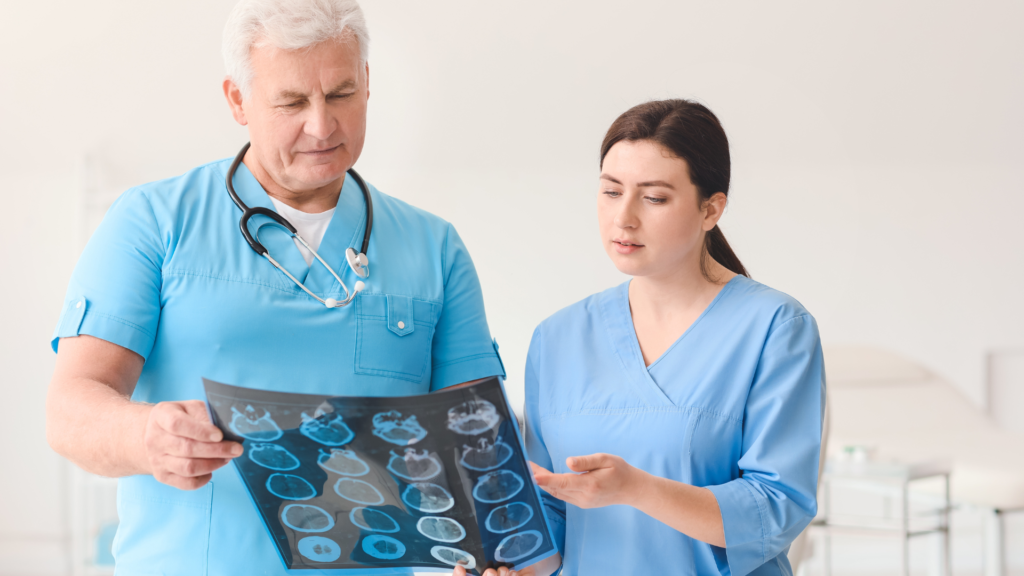A stroke can be a life-altering event, but advances in neurological treatments offer hope for recovery and rehabilitation. At Prime Hospital, we specialize in providing cutting-edge care to individuals who have experienced a stroke, helping them regain their independence and improve their quality of life. This blog explores the significant impact of neurological treatments on stroke recovery, shedding light on the latest therapies and innovations available.
Understanding Stroke: A Brief Overview
A stroke occurs when blood flow to the brain is interrupted, either due to a blockage (ischemic stroke) or bleeding (hemorrhagic stroke). This disruption deprives brain cells of oxygen and nutrients, causing cell death. The severity of a stroke and its effects vary depending on the location and duration of the blood flow interruption. Common symptoms include:
- Weakness or numbness on one side of the body
- Difficulty speaking or understanding speech
- Vision problems
- Loss of balance or coordination
Prompt medical intervention is critical in minimizing brain damage and improving recovery outcomes.
The Role of Neurological Treatments in Stroke Recovery
1. Emergency Interventions
Immediate treatment after a stroke is crucial. Neurological advancements have led to effective emergency treatments, including:
- Thrombolytic Therapy: Medications like tissue plasminogen activator (tPA) dissolve blood clots in ischemic strokes, restoring blood flow. Administering tPA within a few hours significantly improves recovery chances.
- Mechanical Thrombectomy: In cases of large vessel occlusion, a catheter-based procedure removes the clot, often resulting in dramatic improvements.
2. Post-Stroke Rehabilitation
Rehabilitation is a cornerstone of stroke recovery, and neurological treatments have enhanced its effectiveness. Key components include:
- Physical Therapy: Focuses on restoring motor functions, strength, and balance. Techniques like constraint-induced movement therapy (CIMT) encourage the use of affected limbs.
- Speech and Language Therapy: Helps individuals regain communication skills and overcome challenges like aphasia or dysarthria.
- Occupational Therapy: Supports patients in relearning daily activities, such as dressing, cooking, and personal care.
3. Neuromodulation Techniques
Emerging neurological treatments, such as neuromodulation, have shown promise in stroke recovery:
- Transcranial Magnetic Stimulation (TMS): Non-invasive magnetic pulses stimulate specific brain areas, enhancing neuroplasticity and aiding recovery.
- Deep Brain Stimulation (DBS): This involves implanting electrodes in targeted brain areas to modulate neural activity, benefiting patients with severe motor impairments.
4. Medications and Neuroprotective Agents
Certain medications can aid stroke recovery by:
- Reducing inflammation
- Protecting brain cells from further damage
- Enhancing neural repair
Ongoing research into neuroprotective agents continues to expand treatment options.
Cutting-Edge Innovations in Neurological Care
Prime Hospital stays at the forefront of stroke treatment, integrating the latest advancements in neurology to improve patient outcomes. Innovations include:
- Stem Cell Therapy: Promising studies suggest stem cells may repair damaged brain tissue, offering new hope for recovery.
- Robotics and Virtual Reality (VR): Robotic devices assist with physical therapy, while VR simulations create engaging rehabilitation environments.
- Telemedicine and Remote Monitoring: Enables stroke survivors to access expert care from the comfort of their homes, ensuring continuity in recovery.

The Importance of Personalized Stroke Care
No two strokes are alike, and recovery paths differ. At Prime Hospital, we emphasize personalized care tailored to each patient’s unique needs. A multidisciplinary team, including neurologists, physiotherapists, speech therapists, and psychologists, collaborates to develop comprehensive treatment plans.
Patient-Centered Goals
- Restoring mobility and strength
- Improving communication skills
- Addressing emotional and psychological well-being
- Enhancing independence in daily life
Psychological and Emotional Support
Stroke recovery extends beyond physical rehabilitation. Survivors often face emotional challenges, such as depression, anxiety, or frustration. Neurological treatments include counseling and cognitive behavioral therapy to support mental health. Group therapy sessions and support networks also provide encouragement and connection during the recovery journey.
The Role of Caregivers and Family
Family members and caregivers play a vital role in stroke recovery. At Prime Hospital, we offer guidance and training to help caregivers support their loved ones effectively. Encouraging participation in therapy sessions and fostering a positive home environment can significantly enhance recovery outcomes.
Success Stories from Prime Hospital
We have witnessed remarkable transformations in our stroke patients. For instance:
- Case Study 1: A 55-year-old male with a severe ischemic stroke regained mobility through a combination of thrombolytic therapy and intensive rehabilitation.
- Case Study 2: A young woman with aphasia after a hemorrhagic stroke improved her communication skills significantly with speech therapy and TMS.
Such stories inspire us to continue delivering the best neurological care possible.
Preventing Future Strokes
Stroke recovery isn’t just about treatment—it’s also about prevention. At Prime Hospital, we educate patients on reducing risk factors, such as:
- Managing hypertension and diabetes
- Adopting a heart-healthy diet
- Engaging in regular physical activity
- Avoiding smoking and excessive alcohol consumption
Conclusion
Neurological treatments have revolutionized stroke recovery, enabling patients to rebuild their lives with dignity and hope. At Prime Hospital, our commitment to cutting-edge care and personalized rehabilitation ensures the best possible outcomes for stroke survivors.
If you or a loved one has experienced a stroke, don’t hesitate to seek expert care. Contact Prime Hospital today to learn more about our advanced neurological treatments and comprehensive stroke recovery programs. Together, we can pave the way to recovery and a brighter future.
